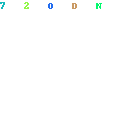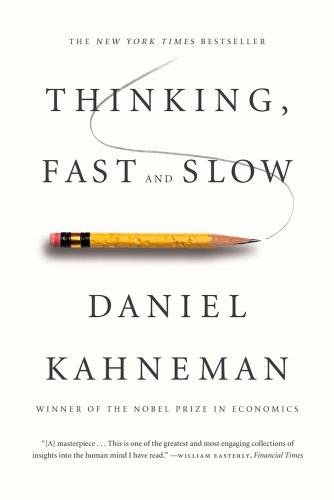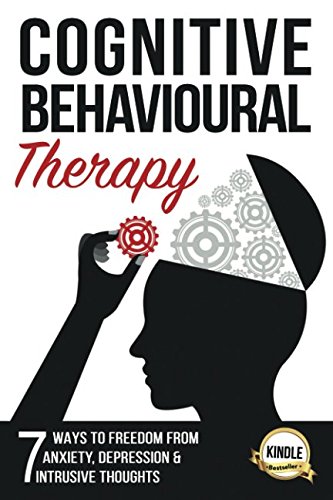If you looking for behavioral psychology then you are right place. We are searching for the best behavioral psychology on the market and analyze these products to provide you the best choice.
Reviews
1. The Laws of Wealth: Psychology and the secret to investing success
Feature
The Laws of Wealth Psychology and the Secret to Investing SuccessDescription
GOLD MEDALIST IN THE AXIOM BUSINESS BOOK AWARDS 2017From New York Times and USA Today bestselling author, Dr Daniel Crosby, comes the behavioral finance book all investors have been waiting for.
In The Laws of Wealth, psychologist and behavioral finance expert Daniel Crosby offers an accessible and applied take on a discipline that has long tended toward theory at the expense of the practical. Readers are treated to real, actionable guidance as the promise of behavioral finance is realised and practical applications for everyday investors are delivered.
Crosby presents a framework of timeless principles for managing your behavior and your investing process. He begins by outlining ten rules that are the hallmarks of good investor behavior, including 'Forecasting is for Weathermen' and 'If You're Excited, It's Probably a Bad Idea'. He then goes on to introduce a unique new taxonomy of behavioral investment risk that will enable investors and academics alike to understand behavioral risk in a newly coherent and complete way.
From here, attention turns to the four ways in which behavioral risk can be combatted and the five equity selection methods investors should harness to take advantage of behaviorally-induced opportunities in the stock market. Throughout, readers are treated to anecdotes, research and graphics that illustrate the lessons in memorable ways. And in highly valuable 'What now?' summaries at the end of each chapter, Crosby provides clear, concise direction on what investors should think, ask and do to benefit from the behavioral research.
Dr. Crosby's training as a clinical psychologist and work as an asset manager provide a unique vantage and result in a book that breaks new ground in behavioral finance. You need to follow the laws of wealth to manage your behavior and improve your investing process!
2. Science And Human Behavior
Description
The psychology classica detailed study of scientific theories of human nature and the possible ways in which human behavior can be predicted and controlledfrom one of the most influential behaviorists of the twentieth century and the author of Walden Two.This is an important book, exceptionally well written, and logically consistent with the basic premise of the unitary nature of science. Many students of society and culture would take violent issue with most of the things that Skinner has to say, but even those who disagree most will find this a stimulating book. Samuel M. Strong, The American Journal of Sociology
This is a remarkable bookremarkable in that it presents a strong, consistent, and all but exhaustive case for a natural science of human behaviorIt ought to bevaluable for those whose preferences lie with, as well as those whose preferences stand against, a behavioristic approach to human activity. Harry Prosch, Ethics
3. Thinking, Fast and Slow
Feature
Thinking Fast and SlowDescription
Major New York Times bestseller
Winner of the National Academy of Sciences Best Book Award in 2012
Selected by the New York Times Book Review as one of the ten best books of 2011
A Globe and Mail Best Books of the Year 2011 Title
One of The Economist's 2011 Books of the Year
One of The Wall Street Journal's Best Nonfiction Books of the Year 2011
2013 Presidential Medal of Freedom Recipient
Kahneman's work with Amos Tversky is the subject of Michael Lewis's The Undoing Project: A Friendship That Changed Our Minds
In the international bestseller, Thinking, Fast and Slow, Daniel Kahneman, the renowned psychologist and winner of the Nobel Prize in Economics, takes us on a groundbreaking tour of the mind and explains the two systems that drive the way we think. System 1 is fast, intuitive, and emotional; System 2 is slower, more deliberative, and more logical. The impact of overconfidence on corporate strategies, the difficulties of predicting what will make us happy in the future, the profound effect of cognitive biases on everything from playing the stock market to planning our next vacationeach of these can be understood only by knowing how the two systems shape our judgments and decisions.
Engaging the reader in a lively conversation about how we think, Kahneman reveals where we can and cannot trust our intuitions and how we can tap into the benefits of slow thinking. He offers practical and enlightening insights into how choices are made in both our business and our personal livesand how we can use different techniques to guard against the mental glitches that often get us into trouble. Winner of the National Academy of Sciences Best Book Award and the Los Angeles Times Book Prize and selected by The New York Times Book Review as one of the ten best books of 2011, Thinking, Fast and Slow is destined to be a classic.
4. Algorithms to Live By: The Computer Science of Human Decisions
Feature
Picador USADescription
What should we do, or leave undone, in a day or a lifetime? How much messiness should we accept? What balance of the new and familiar is the most fulfilling? These may seem like uniquely human quandaries, but they are not. Computers, like us, confront limited space and time, so computer scientists have been grappling with similar problems for decades. And the solutions theyve found have much to teach us.
In a dazzlingly interdisciplinary work, Brian Christian and Tom Griffiths show how algorithms developed for computers also untangle very human questions. They explain how to have better hunches and when to leave things to chance, how to deal with overwhelming choices and how best to connect with others. From finding a spouse to finding a parking spot, from organizing ones inbox to peering into the future, Algorithms to Live By transforms the wisdom of computer science into strategies for human living.
5. Predictably Irrational, Revised and Expanded Edition: The Hidden Forces That Shape Our Decisions
Feature
Harper PerennialDescription
Why do our headaches persist after we take a one-cent aspirin but disappear when we take a fifty-cent aspirin? Why do we splurge on a lavish meal but cut coupons to save twenty-five cents on a can of soup?
When it comes to making decisions in our lives, we think we're making smart, rational choices. But are we?
In this newly revised and expanded edition of the groundbreaking New York Times bestseller, Dan Ariely refutes the common assumption that we behave in fundamentally rational ways. From drinking coffee to losing weight, from buying a car to choosing a romantic partner, we consistently overpay, underestimate, and procrastinate. Yet these misguided behaviors are neither random nor senseless. They're systematic and predictablemaking us predictably irrational.
6. Cognitive Behavioural Therapy For Dummies
Feature
Cognitive Behavioural Therapy for DummiesDescription
An updated edition of the bestselling guide on reprogramming one's negative thoughts and behaviourOnce the province of mental health professionals, CBT (or Cognitive Behavioural Therapy) has gained wide acceptance as the treatment of choice for anyone looking to overcome anxiety, manage anger, beat an addiction, lose weight or simply gain a new outlook on life. Written by two CBT therapists, this bestselling guide helps you apply the principles of CBT in your everyday life-allowing you to spot errors in your thinking; tackle toxic thoughts; refocus and retrain your awareness; and finally, stand up to and become free of the fear, depression, anger, and obsessions that have been plaguing you.
- Includes tips on establishing ten healthy attitudes for living as well as ten ways to lighten up
- Helps you chart a path by defining problems and setting goals
- Offers advice on taking a fresh look at your past, overcoming any obstacles to progress as well as ways to maintain your CBT gains
- Includes new and refreshed content, including chapters on how to beat an addiction and overcome body image issues
With indispensable advice on finding your way out of the debilitating maze of negative thoughts and actions, the book is brimming with invaluable suggestions that will have even a confirmed pessimist well armed for the journey forward.
7. Cognitive Behavioural Therapy: 7 Ways to Freedom from Anxiety, Depression, and Intrusive Thoughts (Happiness is a trainable, attainable skill!)
Description
A Practical Guide to Mental and Emotional Freedom!
Take action now and download this book for a limited time discount!
Feeling lost about how to effectively treat disturbing intrusive thoughts? Youre not alone!
This book contains brilliant advice from a former sufferer of anxiety, depression, and intrusive thoughts. Inspired by compassion, this book is a gift to fellow casualties of negative thought patterns, destructive behaviors, self-loathers, and those wishing freedom from persistent demons. Only by meeting our demons face-to-face can we hope to prevail and achieve inner peace.
Happiness is a trainable, attainable skill!
The most proven method for successfully treating mental suffering is CBT. However, there are also complimentary practices coming from Buddhist and Stoic philosophy. This book equips you with the most effective techniques for overcoming depression, anxiety, and intrusive thoughts. These are long-term solutions that have stood the test of time and scientific rigor.Self-compassion is at the heart of CBT. Take a chance on this book today!
Exactly What You Will Learn
How To...- Understand What Makes Your Mind Tick
- See The Link Between Spirituality and Self-Help
- Confront Anxiety Head-On!
- Challenge Unhelpful, Intrusive Thoughts
- Build a Better Relationship with Yourself
- Break Bad Habits and Enjoy Life!
- Optimal Life Management + BONUS Workbook!
One-Click for a Healthier, Happier Mind!
Full 30-Day 100% Money Back Guarantee. (That's How Confident We Are!)
[100% Extra FREE: 10,000+ Words in Your New and Improved 2nd Edition!]
Tags: Training, Techniques, Course, Self-Help, Online, Books, Anxiety, Depression, Cure, Insomnia, Phobias, Intrusive Thoughts, CBT, Cognitive Behavioural Therapy, Your Stress-Free Life.
8. Criminal Psychology: A Beginner's Guide (Beginner's Guides)
Feature
ONEWorld PublicationsDescription
Criminal psychology is the discipline which tackles these challenges head on. From the signals which give away were lying to the psychological profiling of violent offenders, this exhaustive guide, written by the UKs top experts, is the perfect introduction. Also covering policing, and the much debated topic of sexual offenders and their treatment, it will demonstrate how understanding the mind will help us to view modern justice from a more informed perspective.
9. Buddhist Psychology and Cognitive-Behavioral Therapy: A Clinician's Guide
Description
10. Statistics for The Behavioral Sciences (MindTap for Psychology)










